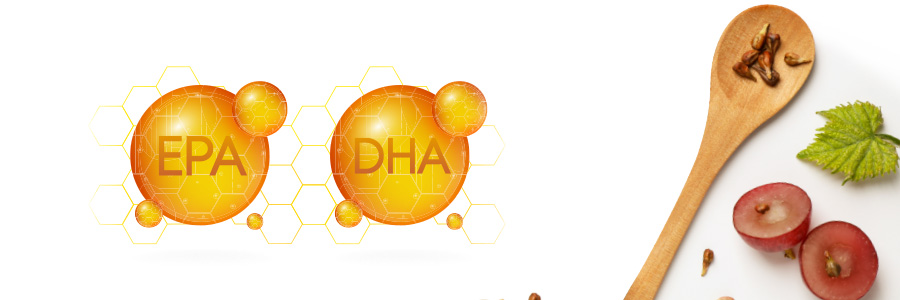


Sign-up for {N}power to get exclusive discounts, newsletters, members-only features, and more!
 Denver - Design District - Alameda and Broadway
Denver - Design District - Alameda and Broadway
368 S Broadway
Denver, CO 80209
United States
 Preferred Store:
Select a Store
Preferred Store:
Select a Store

The omega-3 fats EPA and DHA are safe and effective for cardiovascular disease prevention, with higher doses providing the greatest effects. This is the conclusion from a 2021 study by the Mayo Clinic which analyzed the effects of EPA and DHA supplementation on cardiovascular outcomes; the review included 40 randomized controlled trials with more than 135,000 participants. This is one of the most comprehensive reviews on omega-3 fats and cardiovascular outcomes to date and comes at a time when heart disease remains the number one cause of death in the United States and most of the world.
The review specifically found that people who supplemented with EPA and DHA experienced a 35 percent reduced risk of a fatal heart attack (myocardial infarction), a 13 percent reduced risk of nonfatal heart attack, and a 9 percent reduced risk for both congenital heart disease mortality and events.1 Benefits were achieved with as little as 840 mg of EPA and DHA daily, however many studies found that cardiovascular benefits increased with dose. For example, the risk reduction for congenital heart disease and heart attack was dose dependent, meaning for every additional gram of EPA and DHA taken per day there was a 5.8 percent and 9 percent risk reduction respectively.
While EPA and DHA are found in foods such as salmon, sardines, and herring most people are not consuming the recommended two servings of fish per week. Additionally, benefits of EPA and DHA increase when consumed in amounts much higher than is found in food. While consuming EPA and DHA-rich food should still be a priority due to the variety of beneficial nutrients found in fish, adding an EPA and DHA supplement in doses of 1,000 to 2,000 mg/day can easily increase the total amount of these beneficial fats to ranges that appear to be most beneficial for the prevention of certain cardiovascular diseases.

Hypertension (high blood pressure) continues to be a top modifiable risk factor for cardiovascular disease and premature death worldwide.2 Prioritizing healthy blood pressure is one of the most important things you can do to maximize your healthspan and extend your lifespan, and new research shows that grape seed extract is one way to do that.
A recent study3 published in the journal Nutrients found that supplementation with grape seed extract reduced blood pressure, especially in men, and also helped reduce the perception of stress. Researchers first conducted a cell study to discover a mechanism of action and found that grape seed extract significantly reduced pro-inflammatory molecules and increased production of nitric oxide, a natural vasodilator, in blood vessel cells. Researchers then went on to look at the effects of grape seed extract in humans by conducting a double-blind, randomized, placebo-controlled study on 80 adults with mild hypertension. Participants were between 40 and 70 years old and were randomly assigned to receive either a grape seed extract supplement (150 mg, twice daily) every day for 16 weeks, or a placebo. Subjects underwent several blood pressure tests, as well as questionnaires to assess their perceived stress levels and quality of life.
While results showed a reduction of systolic and diastolic blood pressure in both of the study groups, the blood pressure decrease was more pronounced in the grape seed extract supplemented group, with the effect most significantly observed in men. The study also found a statistically significant reduction in worries, as well as beneficial effects on both stress and mood. This new study adds to a body of research confirming grape seed extract’s anti-inflammatory, antioxidant, and cardioprotective effects.



Sign-up for {N}power to get exclusive discounts, newsletters, members-only features, and more!
